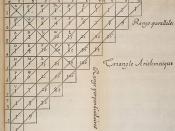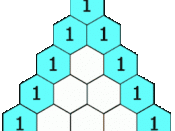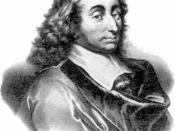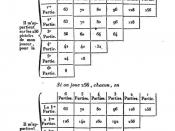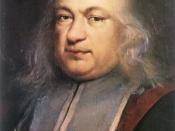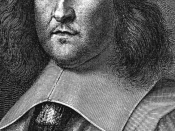Blaise Pascal and Pierre Fermat Pascal and Fermat are two French mathematicians known for their great contributions to our present day probability problems. Their discoveries were figured out on different gambling situations. Their findings started in 1654 after Pascal asked Fermat's advice about problems on a game of chance when gambling. Their solutions to the problems lead to the probability theory still used in today's modern society.
They, both, realized that the "probability of something happening could be computed by enumerating the number of equally likely ways it could occur, and dividing this bye the total number of possible outcomes of the given situation"ÃÂ Fermat figured out the 16 different (equally likely) results of tossing a coin 4 times, and then counted the ones that could make him win.
They also worked on problems, for example, asking how many times one must throw a pair of dice in order to get a pair of sixes.
At this time, the two mathematicians solved the problem for a two-player game, but could not figure out the methods for a game of three or more players. However, their discoveries of probability problems, when gambling, were the beginning of new mathematical ideas useful to society.
Pascal invented a simple method now known as "ÃÂ Pascal's Triangle"ÃÂ to find out the probability of certain outcomes. For example, each number in the triangle is the sum of the two numbers right above it. This method is very helpful for finding the probability of events with only two possible outcomes. This practice includes tossing a coin (head or tail) or having a child (boy or girl). For instance, if a coin is tossed three times, there are eight possibilities. The triangle can also be used to figure out questions for possible combinations of items. For example, if there were four coins tossed into the air the possible combinations of heads and tails would be what number.
Mathematicians before the sixteenth century did not study games of chance, such as tossing a dice or spinning a roulette wheel. Pascal and Format's contributions to the development of probability have made a lasting impact on society. Everything they've created is still in use today in one way or another.
